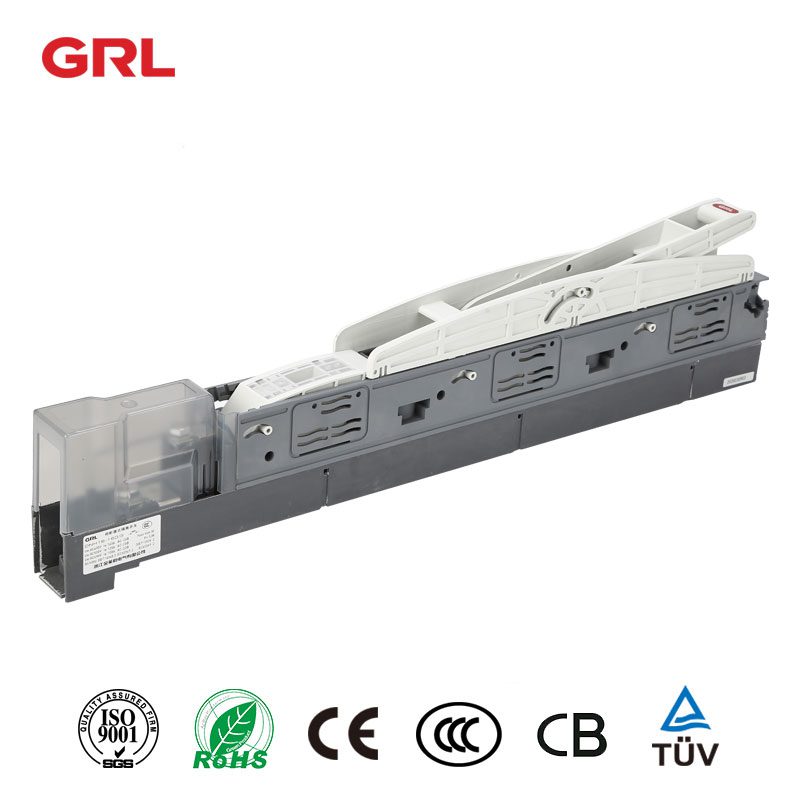
# Vertical Disconnecting Switches in Power Systems
## Introduction to Vertical Disconnecting Switches
Vertical disconnecting switches, also known as vertical break disconnectors, are essential components in electrical power systems. These devices play a crucial role in isolating sections of power networks for maintenance, repair, or safety purposes. Unlike horizontal disconnectors, vertical disconnecting switches operate with a vertical movement mechanism, making them particularly suitable for certain installation configurations.
## Design and Construction Features
The design of vertical disconnecting switches incorporates several key elements:
– Insulator columns that provide proper insulation between phases
– Moving contacts that pivot vertically during operation
– Stationary contacts designed for reliable connection
– Operating mechanisms (manual or motorized)
– Base frame for structural support
These switches are typically constructed with robust materials to withstand environmental conditions and electrical stresses. The vertical orientation of the moving contacts allows for compact installation in substations where space might be limited horizontally.
## Operational Characteristics
Vertical disconnecting switches operate on a simple yet effective principle:
The moving contact arm rotates in a vertical plane, either upward or downward, to establish or break the electrical connection. This vertical movement creates a visible air gap when the switch is in the open position, providing a clear indication of the circuit’s status.
The switching action is designed to ensure:
– Reliable connection under normal operating conditions
– Proper isolation when open
– Adequate clearance between contacts in the open position
– Smooth operation with minimal friction
## Applications in Power Systems
Vertical disconnecting switches find applications in various scenarios:
Substation Installations
They are commonly used in substations for isolating transformers, circuit breakers, and other equipment. The vertical design often allows for more compact substation layouts compared to horizontal switches.
Transmission Lines
These switches are employed at transmission line terminals for maintenance isolation. Their vertical operation can be advantageous in certain tower configurations.
Generator Circuits
Vertical disconnectors provide isolation points in generator circuits, allowing safe maintenance of generator equipment.
## Advantages Over Horizontal Disconnectors
Vertical disconnecting switches offer several benefits:
– Space efficiency in height-constrained installations
– Better performance in areas with limited horizontal space
– Reduced risk of contact contamination from falling debris
– Clear visual indication of switch position
– Often simpler mechanical design than some horizontal alternatives
## Maintenance and Safety Considerations
Proper maintenance of vertical disconnecting switches is crucial for reliable operation:
Regular inspection should include checking contact condition, verifying proper alignment, and ensuring smooth operation of the mechanism. Lubrication of moving parts and cleaning of insulating surfaces are also important maintenance tasks.
Safety protocols must always be followed when working with or near these switches:
– Ensure proper lockout/tagout procedures are implemented
– Verify de-energization before working on isolated equipment
– Use appropriate personal protective equipment
Keyword: Vertical disconnectors
– Follow manufacturer’s maintenance recommendations
## Future Developments
The evolution of vertical disconnecting switches continues with advancements in:
– Materials technology for improved durability
– Remote operation capabilities
– Condition monitoring systems
– Compact designs for higher voltage applications
– Enhanced safety features
These developments aim to improve reliability, reduce maintenance requirements, and enhance operational flexibility in modern power systems.